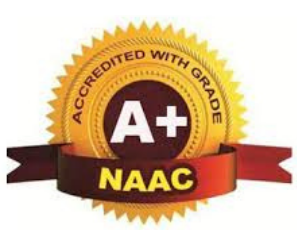B.Sc Programme
The Department offers a comprehensive 6 semester B. Sc Electronics course. The students can have their choice in groups as follows –
- Physics- Maths- Electronics
- Physics-Chemistry-Electronics
They were offered B. Sc degree is a unique three-year course.
Below is some key information about the program:
Sanctioned Intake : 30 to 50
Qualification Required : 12th Science
Selection Procedure : As per rule and regulation of S. R. T. M. University, Nanded.
Course Outcomes : Click Here
Syllabus of the Course
| Sr.No. | Name of the Course | Year | Syllabus Link |
| 1 | B.Sc | I | Click Here |
| 2 | B.Sc | II | Click Here |
| 3 | B.Sc | III | Click Here |
Program Outcomes
- The student acquires learning experiences that develop broad knowledge and understanding of key concepts of electronic science and equip students with advanced scientific/technological capabilities for analyzing and tackling the issues and problems in the field of electronics.
- The student apply knowledge and skills they have acquired to the solution of specific theoretical and applied problems in electronics.
- The student will have the abilities to design and develop innovative solutions for benefits of society, by diligence, leadership, team work and lifelong learning.
- Provide students with skills that enable them to get employment in industries or pursue higher studies or research assignments or turn as entrepreneurs.
- Prepare them with extensive knowledge of the disciplinary foundation in the various areas of Electronics, as well as insight into contemporary research and development.
- To make them capable for specialized methodological knowledge in the specialized areas of Electronics about professional literature, statistical principles and reviewing scientific work.
- It creates the ability to apply electronics knowledge & experimental skills critically and systematically for assessment and solution of complex electronics problems and issues related to communication systems, embedded systems, computers networks, robotics, VLSI Design and fabrication and other specialized areas of electronics.
- The student acquires an ability to model, simulate and evaluate the phenomenon and systems in the advanced areas of electronics.
- The student develops an ability to apply one’s electronics knowledge, experimental skills, scientific methods & advanced design, simulation and validation tools to identify and analyze complex real life problems and frame technological solutions for them.

